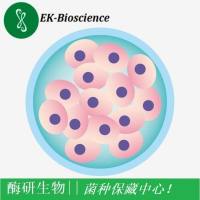Study Designs in Genetic Epidemiology
互联网
504
Identification of germline mutations that may modulate individual risk of developing cancer is a rapidly developing field. Over the last few decades, germline mutations in p53, BRCA1, BRCA2, APC, MLH1, MSH2, and MSH6 have been identified in families with a large number of relatives who have been diagnosed with particular types of cancer. These mutations are rare but substantially increase the risk of cancer in carriers, and account for a small fraction of cancer cases diagnosed in the general population. The search for common mutations that correlate with a very modest increased risk of developing cancer is ongoing. With the completion of the Human Genome Project, a large array of methods to identify these genes and their variants are under development. The following chapter describes methods to provide evidence of a genetic component associated with disease risk, how to identify chromosomal regions of interest to identify rare but highly penetrant genetic variants, and methods used to identify more common mutations which modulate cancer development.







